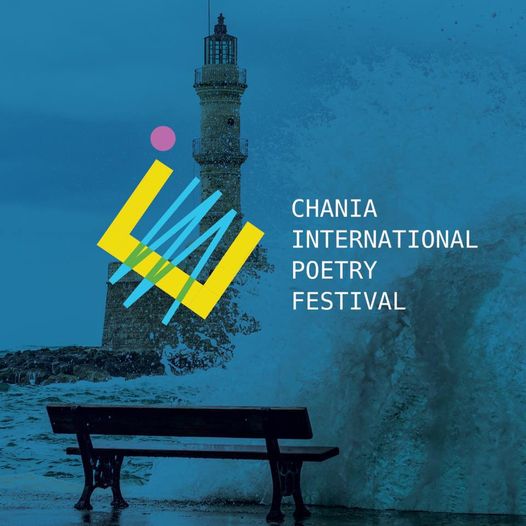Crete, the largest of the Greek islands, is a land steeped in mythology, history, and vibrant cultural traditions. Beyond its stunning landscapes and ancient ruins, Crete is also home to a dynamic poetry scene that celebrates both local and international voices. This rich literary tradition is deeply rooted in the island’s history, yet continues to evolve and thrive in contemporary times. This guide explores the Cretan poetry scene, highlighting its historical significance, key events, influential poets, and the cultural exchange that keeps the island’s poetic spirit alive.
Historical Significance of Cretan Poetry
The roots of Cretan poetry can be traced back to the Minoan civilization, with early forms of written expression found in ancient artifacts. During the Renaissance, Crete experienced a cultural blossoming under Venetian rule, producing notable works such as the “Erotokritos” by Vitsentzos Kornaros, a romantic epic that remains a cornerstone of Greek literature. This period cemented Crete’s reputation as a hub of poetic and literary activity.
Contemporary Cretan Poetry
Today, Crete’s poetry scene is a vibrant blend of tradition and modernity. Local poets draw inspiration from the island’s natural beauty, historical events, and daily life, while also engaging with global themes and contemporary issues. This blend of influences creates a rich tapestry of poetic expression that resonates with both local and international audiences.
Key Events and Festivals
The celebration of poetry in Crete is marked by numerous events and festivals that bring together poets, writers, and literature enthusiasts from around the world.
Chania International Poetry Festival: Held annually in the picturesque city of Chania, this festival is a major event in the island’s literary calendar. It features readings, workshops, and panel discussions, providing a platform for both established and emerging poets. The festival fosters cultural exchange and showcases a diverse range of poetic voices, making it a vital part of the global poetry community.
Rethymnon Literary Festival: This festival, held in the historic town of Rethymnon, celebrates all forms of literature, with a special emphasis on poetry. It includes poetry readings, book signings, and interactive sessions with poets and authors. The festival’s setting in Rethymnon’s charming old town adds a unique ambiance to the event, enhancing the overall experience for attendees.
Heraklion Poetry Readings: Heraklion, Crete’s capital, hosts regular poetry readings and open mic nights at various cultural centers and cafes. These events provide a more intimate setting for poets to share their work and engage with the local community. The city’s vibrant arts scene ensures a steady flow of creative expression and dialogue.
Influential Cretan Poets
Cretan poetry boasts a lineage of influential poets whose work has left a lasting impact on both local and international literature.
Odysseas Elytis: Although not born in Crete, Nobel laureate Odysseas Elytis has strong ties to the island, often drawing inspiration from its landscapes and culture. His poetry, characterized by its lyrical beauty and profound depth, captures the essence of the Greek spirit and the natural world.
Kostas Mountakis: Known for his poignant and evocative verses, Mountakis is a prominent figure in contemporary Cretan poetry. His work often explores themes of identity, memory, and the passage of time, resonating deeply with readers.
Marika Mitsotaki: A modern voice in Cretan poetry, Mitsotaki’s work is celebrated for its introspective and emotional depth. Her poems navigate the complexities of human relationships and the nuances of everyday life, making her a significant contributor to the island’s literary landscape.
Cultural Exchange and International Voices
The Cretan poetry scene is not limited to local talent; it is enriched by international voices that bring diverse perspectives and styles. Events like the Chania International Poetry Festival highlight this cultural exchange, inviting poets from various countries to share their work and engage with Cretan audiences. This interaction fosters a global dialogue and broadens the scope of poetic expression on the island.
Poetry in Everyday Life
In Crete, poetry is not confined to festivals and formal readings; it is woven into the fabric of everyday life. Local cafes, tavernas, and cultural centers often host impromptu poetry readings and discussions, creating a vibrant and inclusive literary community. These gatherings offer an informal setting for poets and poetry lovers to connect, share ideas, and celebrate the written word.
The Future of Cretan Poetry
The future of Cretan poetry looks promising, with a new generation of poets emerging and embracing both traditional and contemporary influences. Digital platforms and social media are also playing a role in expanding the reach of Cretan poetry, allowing poets to connect with a global audience and share their work widely.
Conclusion
The Cretan poetry scene is a dynamic and evolving landscape that celebrates the richness of local and international voices. From its historical roots to contemporary expressions, poetry in Crete is a testament to the island’s enduring cultural heritage and its openness to global influences. Whether through festivals, intimate readings, or everyday encounters, Cretan poetry continues to inspire, provoke, and delight, offering a unique lens through which to explore the beauty and complexity of life. Embrace the poetic spirit of Crete and discover the island’s literary treasures, where tradition and innovation meet in a harmonious dance of words.


